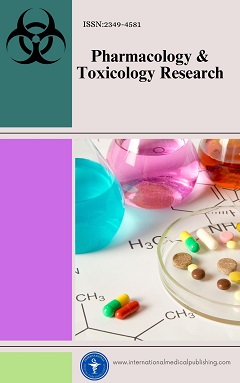TOXICOLOGICAL EFFECT OF AQUEOUS EXTRACTS OF Crotonlobatus L. AND Schrankia leptocarpa L. IN RATS MODEL
Abstract
Croton lobatus L. (Euphorbiaceae) and Schrankia leptocarpa (Mimosaceae) showed interesting activities against Plasmodium and microbial strains. Considering these biological activities and the extensive use of these plants in traditional medicine, the toxicological profile of their aqueous extracts was assessed using oral acute toxicity in the rat model. Acute toxicity of aqueous extracts of tested plants was assessed at a dose of 2000 mg/kg as per Organization for Economic Cooperation and Development, guideline n° 423. The rats were observed for signs of toxicity or death after administra- tion of extracts. Distilled water was used for control rats. Blood samples were collected and used to evaluate biochemistry and hematology parameters. Histopathological evaluation was also done on liver and kidney. The results revealed that all tested animals were physically active during the test. No signs of toxicity or morbidity in rats treated with extracts were observed. There were no significant variations in the biochemical and hematological parameters between rats treated with aqueous extract of Schrankia leptocarapa and those received distilled water. A significant decrease of serum alanine aminotransferase
and Creatinine (P = 0.01) level was observed in rats treated with aqueous extract of Croton lobatus while a significantly increased level of RBC (P = 0.04) and Hematocrit (P = 0.01). Histopathological examination of liver and kidney sections of rats treated with 2000 mg/kg body weight of aqueous extracts of Croton lobatus, Schrankia leptocarpa did not show any changes when compare to control rats. These results indicate that the oral administration of aqueous extracts (decoction) of Croton lobatus and Schrankia leptocarpa did not produce any significant toxic effect in rats.





